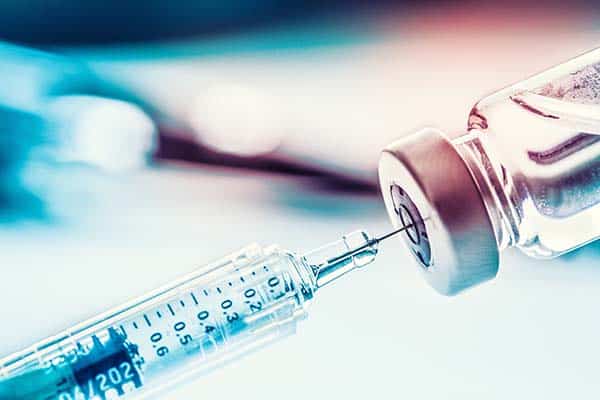What are mRNA vaccines and how do they work?
Vaccines help prepare the body to fight foreign bacteria, viruses or pathogens to prevent infection. Most contain a weakened or dead bacteria/virus to trigger an immune response. Scientists have now developed a new type of vaccine using a molecule called messenger RNA (mRNA for short). mRNA is a type of ribonucleic acid (RNA) necessary for protein production, which uses the information in genes to create a blueprint for making proteins.
mRNA vaccines work by introducing a small piece of mRNA that corresponds to a viral protein. Using the mRNA as a blueprint, cells produce the viral protein. During a normal immune response the protein is seen as foreign, triggering the production of antibodies, which are specialized proteins that recognize and mark foreign entities for destruction. (The mRNA vaccine does not expose individuals to the virus itself, nor can they become infected by the vaccine.)
Are mRNA vaccines new?
No. While this technology became famous during the COVID-19 pandemic, mRNA vaccines have been worked with for decades; and previously studied for the flu, Zika, rabies, and cytomegalovirus (CMV). Since these vaccines are developed in a lab with readily available materials, they can be developed and produced in large quantities faster than other methods.
Clinical trials begin for mRNA HIV vaccine
In January of 2022, Moderna announced it has launched early-stage clinical trials of an HIV mRNA vaccine. Almost 38 million people worldwide, including roughly 1.3 million in the U.S., are living with HIV. HIV, or human immunodeficiency virus, can lead to the potentially fatal disease AIDS. While
HIV is more manageable in recent years with new medications, no vaccine has ever been developed.
Researchers developed a primary vaccine and also a booster that delivers molecules that elicit an immune response, called HIV immunogens. The hope is this process will induce B cells, a specific type of white blood cell, to turn into broadly neutralizing antibodies to neutralize the virus.
Phase I of the trial began at George Washington University and includes three other locations: the Hope Clinic of Emory Vaccine Center in Atlanta, the Fred Hutchinson Cancer Research Center in Seattle, and the University of Texas-Health Science Center at San Antonio.
Of the 56 healthy HIV-negative adults at each site, 48 will receive one or two doses of the mRNA vaccine, and 32 also will receive the booster. The remaining eight will receive only the booster. Following their last dose, participants will be monitored for six months.
Sources: (Source heading)
- “Moderna launches clinical trial for HIV vaccine that uses mRNA technology,” ABC News, accessed February 18, 2022,Moderna launches clinical trial for HIV vaccine that uses mRNA technology
- “What are mRNA vaccines and how do they work?” MedlinePlus, accessed February 18, 2022 What are mRNA vaccines and how do they work?
- “Understanding mRNA COVID-19 Vaccines?” Center for Disease Control and Prevention, accessed February 18, 2022 Understanding mRNA COVID-19 Vaccines





